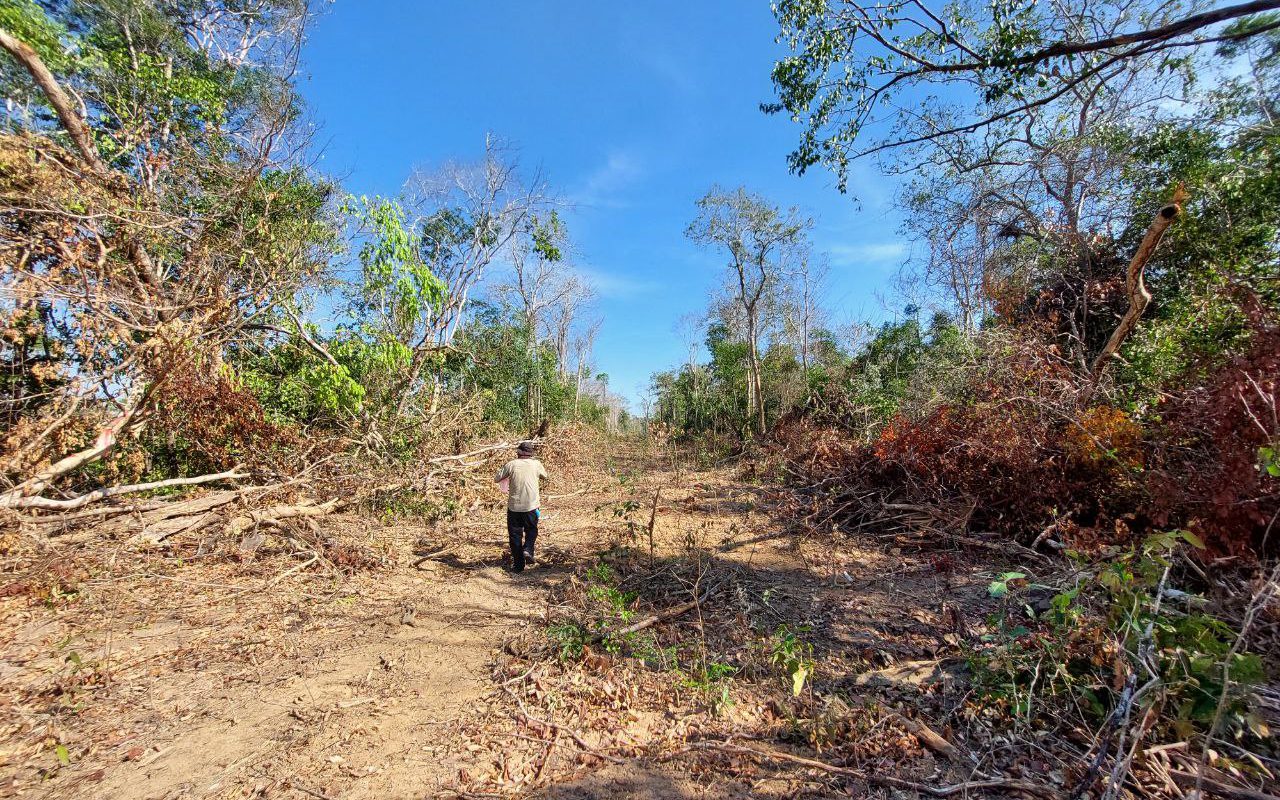SAMBOR DISTRICT, Kratie province — Say Khoeun woke up at 6 a.m. one morning in mid-February. The village chief packed some food and water, got onto his motorcycle and started driving in the Koh Entchey forest — a small community forest in Kratie province’s Boeng Char commune.
Khoeun and other community members try to patrol the Koh Entchey forest at least four times a month, always on the watch for illegal logging and deforestation activity.
On that February morning, Khoeun found nothing suspicious, but he carefully checked the forest’s designated boundaries, which he says are his biggest concern. Inside, there is significant vegetation. Outside, it is dusty roads and plantations.
The community forest and three others — Kampong Domrey, Kampong Kraboeung and Angkor Ent — lie squarely within a 34,000-hectare acacia-timber concession earlier given to Think Biotech, which has faced repeated accusations of laundering wood from the nearby Prey Lang protected forest.
Residents from villages that skirt the river said the company was logging just inside the boundaries of their community forests.
The overlapping interests of the company’s land and the community forests are a result of concessions and protections accumulating over almost a decade, and show competing interests leading to confusion and allegations of impropriety. According to the company, however, there is no encroachment, only unclear boundaries.
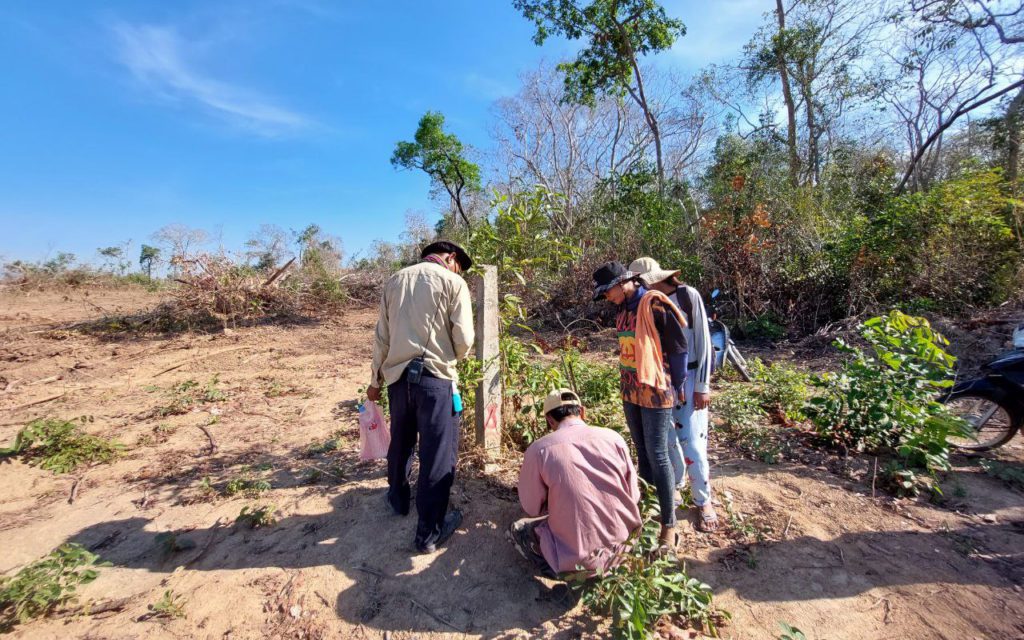
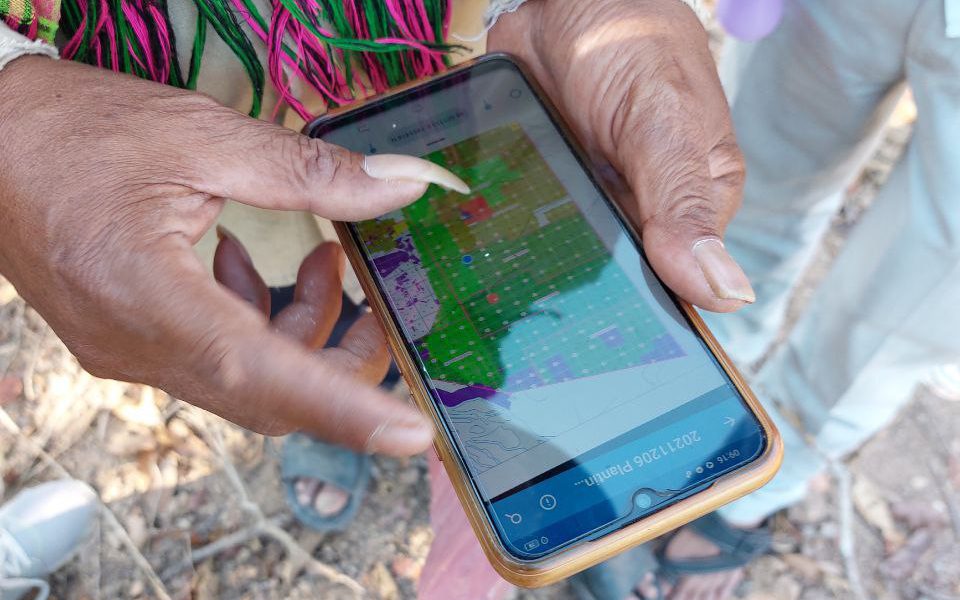
Khoeun estimates that the so-called reforestation company has cleared around 10 hectares from Kon Entchey. The four forests collectively cover around 4,900 hectares in Boeng Char commune, according to USAID.
Khoeun was surprised that Think Biotech, with its 34,000-hectare concession, would want to log their smaller community forests.
Boeng Char commune chief Hul Soeng acknowledged that the company appeared to be encroaching on forestland, but said he was also trying to convince people about Think Biotech’s reforestation pitch.
The company has been clearing forests deemed degraded by the government to replant it with acacia trees. Environmentalists have rejected the company’s claims of economic benefits from the reforestation project, saying the conversion of diverse landscapes into monoculture economic forests primarily gives benefits to owners, not locals.
Soeng referred to the Koh Entchey community forest as degraded forest, saying it was not reaping any financial benefits for the community. Instead, it would be advisable to replant the land to ensure development of the area.
Even as he makes this pitch, he reverts back to acknowledging that the community doesn’t want acacia trees and “we don’t like their wood — we like ours.”
“If the community decides to negotiate, the ministry will be an arbitrator,” he said in summation.
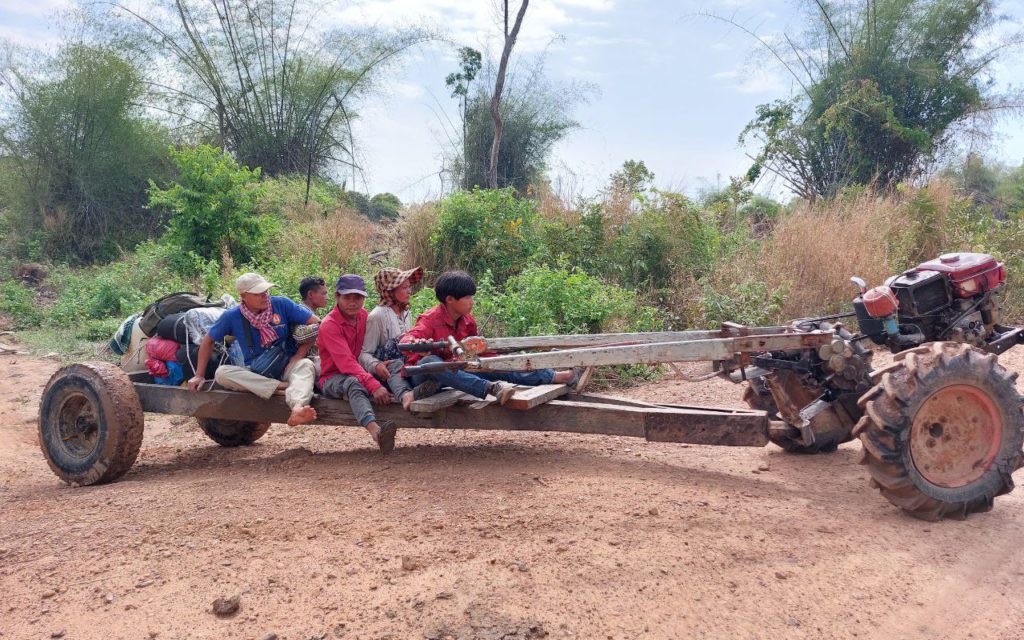
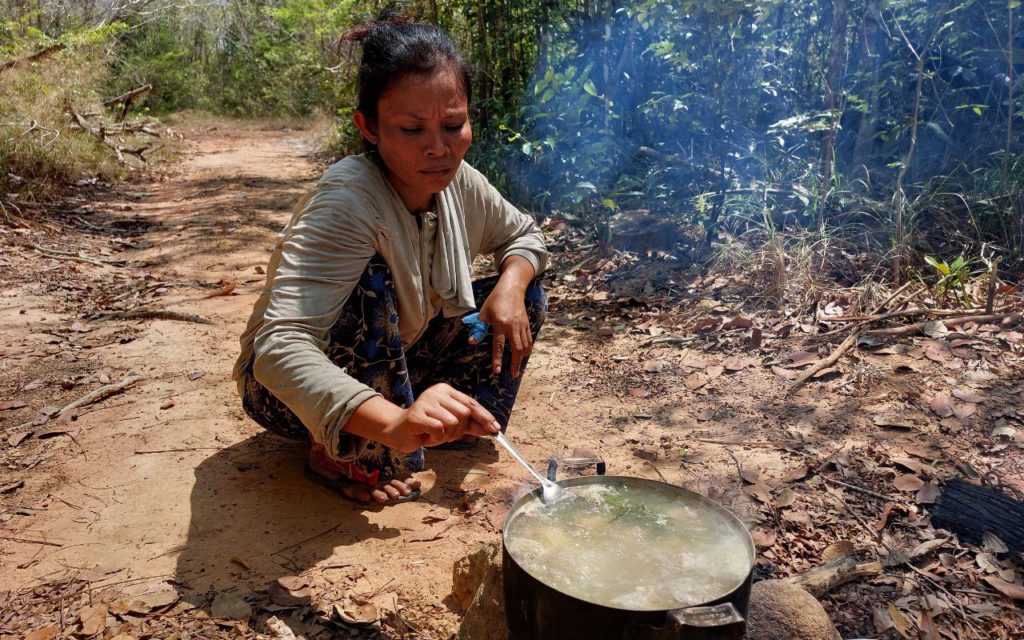
It is not an uncommon sight to see trucks hauling massive trees, or small trailers transporting sawn pieces of wood in the area. Forest activists like award-winning Ouch Leng have released camera trap and drone footage showing the destruction of the forest in Prey Lang and around it.
In February, VOD reporters saw trailers hauling wood, some potentially high-quality timber, along roads and pathways created by Think Biotech. Residents said some of the trailers headed to the river to waiting boats, but did not know where the wood was taken.
The three classifications of land abutting against each other — Think Biotech’s concession, the Prey Lang Wildlife Sanctuary, and the four community forests — were approved over almost a decade, in 2011, 2016 and 2019, respectively.
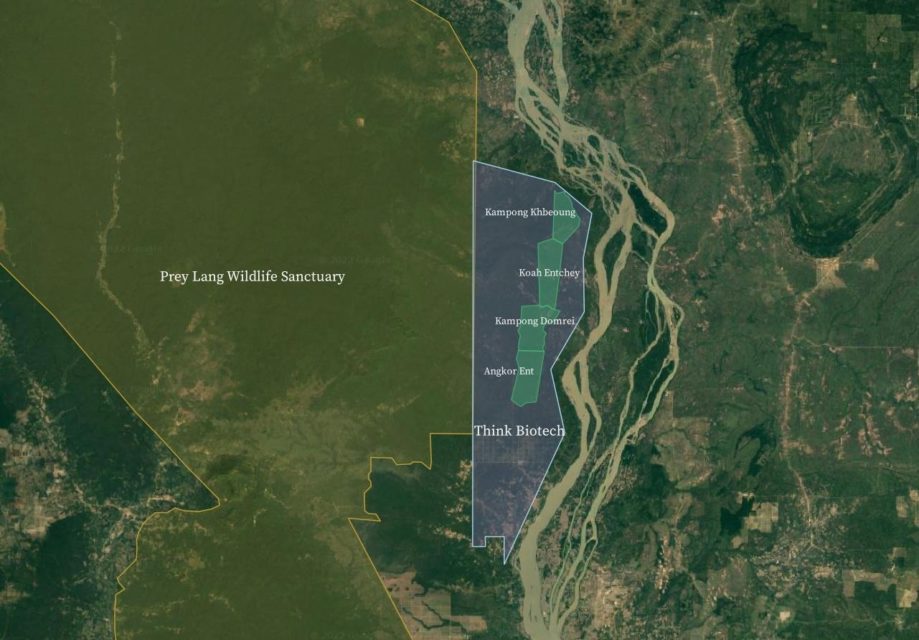
Cambodia Youth Network program coordinator Out Latin said that despite the community forests being within the wider Think Biotech concession boundary, the company should not have any rights over them.
“In general, the company concession area is separate from the community forest,” Latin said, noting that the company is not allowed to log the community forest.
Latin added that the community doesn’t have the right either to buy and sell the community forests to a third person, or even to rent them to the company. Only the Environment Ministry could make that decision, he said.
Heng Sros, a forest activist, agreed that the community forests are supposed to be protected areas even within the company’s concession.
“In the document they’ve promised the community they wouldn’t touch it,” Sros said. “If the community has lost land, they should measure it.”
Think Biotech has a security presence around and within its concession, and boom barriers along dusty roads prevent access to the four community forests, especially for outsiders like conservation NGOs and journalists.
“Before, the Prey Lang [Community Network] were detained by the company and they took their phones, but it is OK for villagers. They are scared only of the outsiders if they might take a picture of [Think Biotech] working,” said San Bunseit, a Koh Entchey community representative.
Bunseit, who patrols the Koh Entchey community forest, alleged that the company had offered her $10,000 for the whole community’s forest to replant it. She has repeatedly denied the offer.
“The company asked why I don’t want to give it to the company. I said because the government provides us this community forest,” she said.
Asked about Think Biotech’s alleged incursions into the community forests, Duong Chhay Savuth, the director of Kratie’s environment department, said officials are working on the case but declined to give more information.
“I can’t tell you. I am currently working on that and will go down to check,” he said.
Say Barang, chief of agriculture at Think Biotech, denied the company was encroaching on the forests, instead arguing that boundaries between their concession and the community forests were not clearly demarcated.
He said the company never stopped residents from patrolling the area but needed prior notification in case they caused accidents or fires.
“The problem is not that the company is encroaching, but there may be a technical problem. They drew inaccurate maps, so with that problem there has been a pause on both sides, waiting for a second map for verification,” Barang said.
But residents said the company was also exerting its influence outside the concession to the east.
Villages in the commune are crammed between Think Biotech’s concession border to the east and the river. Residents of the mostly indigenous Kuy minority group said the concessionaire was encroaching on their farmland, affecting their ability to grow crops, like rice.
The company has also put up small A4-sized signs warning residents from allowing their farm animals to stray into the concession, pointing out that they will have to pay a $125 penalty to get back the animal.
Yah Mourn, a Kuy community representative, alleged that she used to have farmland just outside the Think Biotech concession’s eastern boundary, but that the company had cleared it. Without the land, she could not continue traditional rotation farming, and the community was losing a part of their identity if they couldn’t farm the way their ancestors did, she said.
“I don’t have the land anymore. They cleared it. And they planted trees around,” Mourn said.
At a nearby farm, San Sok said he is anxious. He has seen his neighbors lose their farmland without any monetary compensation. And now he is waiting for the inevitable.
“Worry is all we have. I don’t know what to do if they come,” Sok said.


